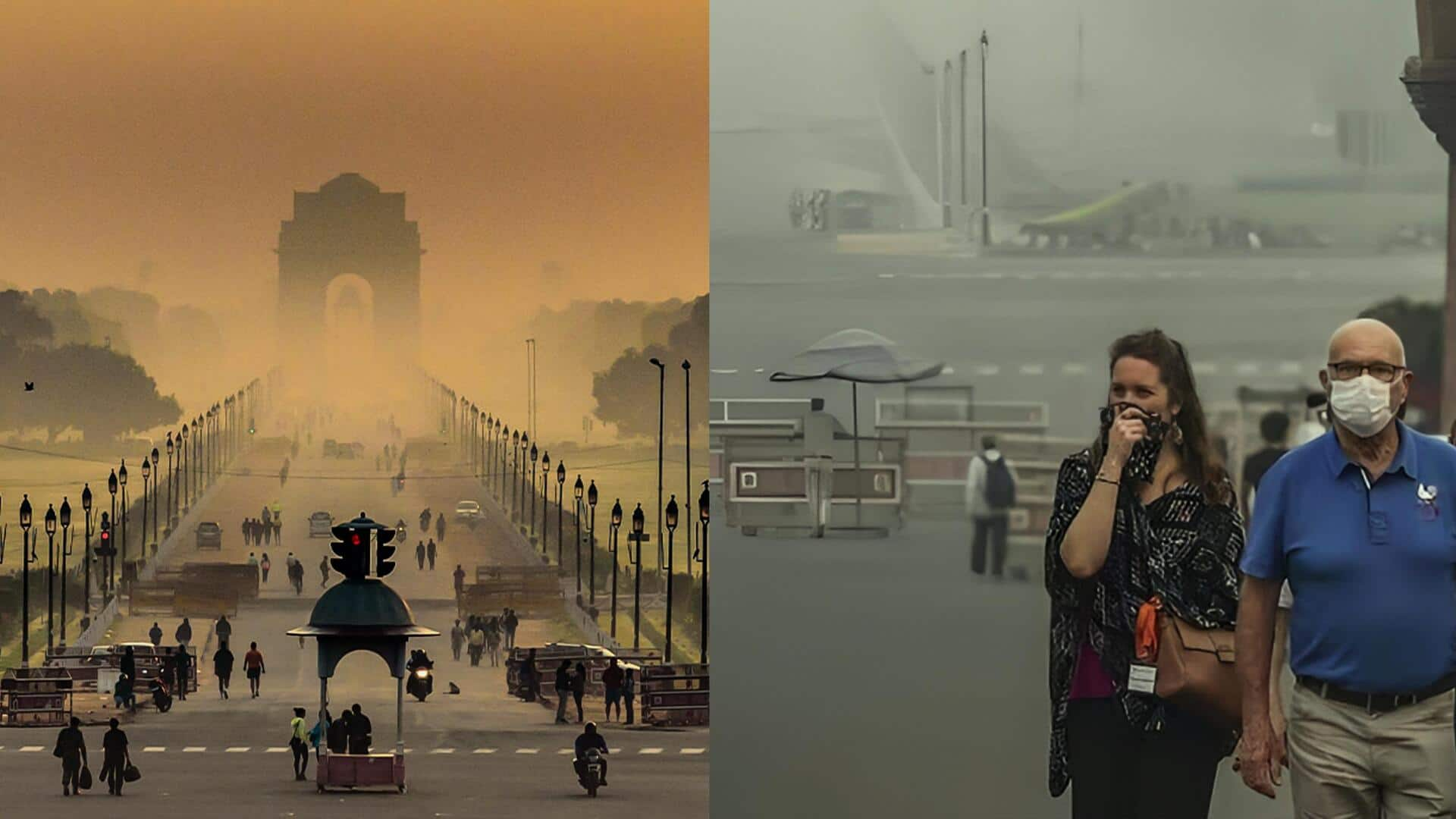
Delhi's AQI improves but might backslide amid festival, harvest
What's the story
Delhi's air quality index (AQI) has reportedly improved to the "poor" category after two consecutive days of hovering in the "very poor" bracket.
The national capital's overall AQI was measured at 221 on Tuesday, while it was 306 on Monday morning, 313 on Sunday, and 248 on Saturday, as per System of Air Quality and Weather Forecasting And Research (SAFAR) data.
Forecast
Air quality likely to worsen: IMD
The India Meteorological Department (IMD) forecasted that Delhi's air quality might relapse to the "very poor" category on Tuesday and Wednesday.
It attributed the projected deterioration to a drop in temperature and emission from stubble burning.
It is also predicted that the air quality in the National Capital Region (NCR) will be at the lower end of the "very poor" category on Thursday.
Levels
Significant improvement recorded in NCR
The Central Pollution Control Board (CPCB)'s latest data showed the AQI of Faridabad was 216, Gurugram 219, and Noida 228.
The data recorded on Sunday showed the AQI was 322, 255, and 304, respectively.
An AQI between 0-50 is considered as "good," 51-100 as "satisfactory," 101-200 as "moderate," 201-300 as "poor," 301-400 as "very poor," 401-500 as "severe," and above 500 as "severe plus."
PM
PM 2.5, 10 levels in 'under moderate' category
The concentration levels of particulate matter (PM) 2.5 and PM 10 reached 313 and 191, respectively, on Tuesday, categorized as "under moderate."
Before Sunday, the last "very poor" AQI in the national capital was recorded on May 17 at 336.
In light of the rising pollution amid the onset of winter, the Delhi government on Monday announced several steps to curb air pollution.
Measures
Steps taken by government to control pollution
Delhi Environment Minister Gopal Rai on Monday said the "Red Light On, Gaadi Off" initiative would be relaunched on Thursday, urging people to switch off their vehicles when the light turns red at traffic signals.
Moreover, the second stage of the Graded Response Action Plan (GRAP) was also implemented, under which the parking fees are increased to discourage private transport, among other measures.